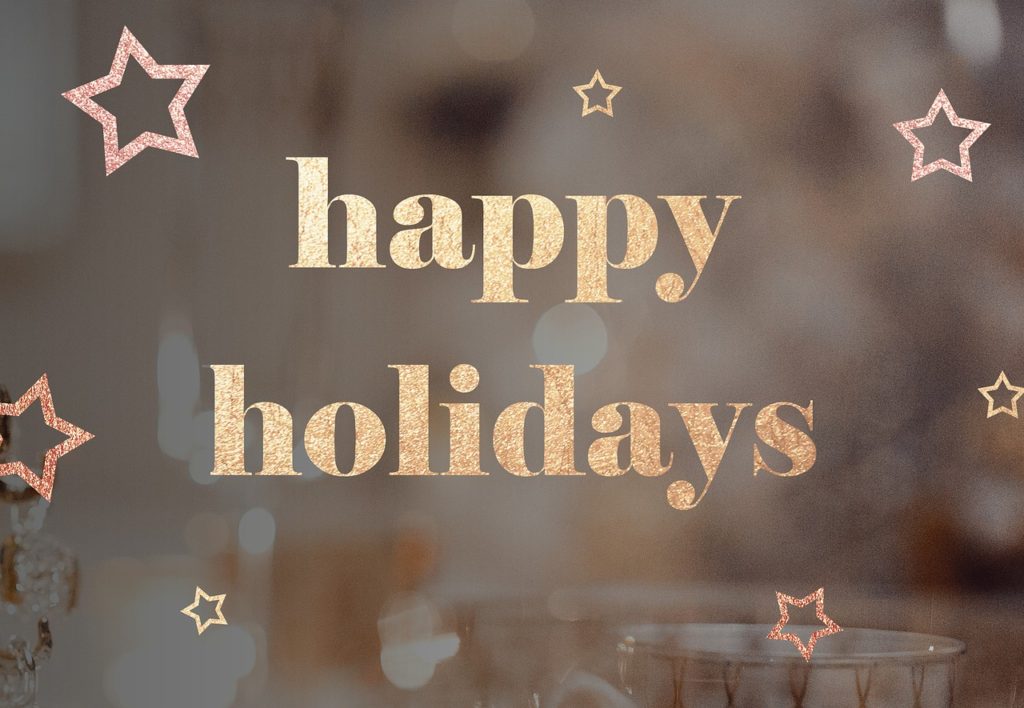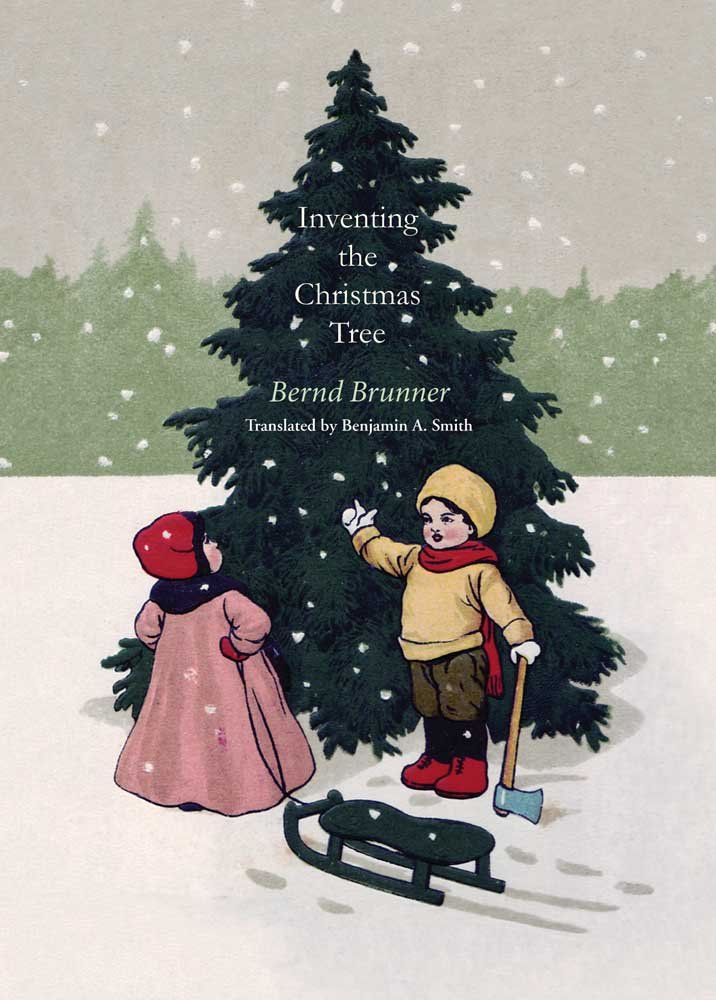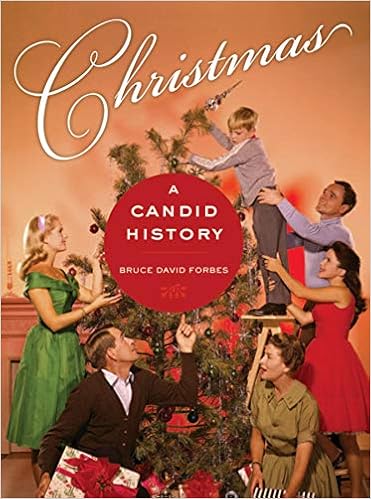December Virtual Display: Winter Holidays

Clark College student library worker Rebekah Semrau assisted in the creation of this post.
Clark College Libraries wishes you a happy holidays! Our only virtual display of December is focused on winter holidays, including Hanukkah (December 10th – 18th), Christmas (December 25th) and Kwanzaa (December 26th – January 1st). Check out the resources below to learn more about holiday traditions, including how different groups celebrate each holiday and how to safely celebrate this year.
Follow the links below to check out some ebooks, videos, articles, and other digital resources. To access ebooks click the link next to “Get It Now At:” and sign in with your lab username and password. Some may have a link at the top of the page that says “Check for full text” instead. Non-Clark Libraries resources do not require a Clark Labs account.
eBooks from Clark College Libraries
Outside Resources
Winter Holidays
7 creative ways to celebrate the holidays safely during COVID-19
“While this year will undoubtedly look different from years past, our holiday celebrations can still be meaningful and enjoyable.”
8 Queer Tips to Get Through the Holidays
“The Holidays can be a really tough time for queer and trans people, especially for those of us who come from religious families. Whether this season means being alone or whether it means going back to be with your family of origin, putting plans in place to help you cope and get through the holidays is essential. Here are some things that have helped us!”
20 ideas to rescue the holiday spirit with family and friends in 2020
“Coronavirus has not been kind to our holidays — first it was Saint Patrick’s Day, then Patriots Day, the Fourth of July, and Halloween. And with the recent uptick in cases and cutback in the number of people allowed for gatherings, it looks like the pandemic will be putting the squeeze on Thanksgiving and our winter holidays, too. But keeping the season safe doesn’t have to be a total bust. With a little creativity, you can still start a new tradition, get a (virtual or socially distant) gang together, and celebrate.”
Adapting Holiday Traditions During Coronavirus…
“Here is the holiday kindness ideas list my family is brainstorming, as well as some PBS KIDS resources that can help you make compassion a purposeful part of your family’s holiday season this year. ”
Celebrate the Holidays with PBS
“We have everything you need to get into the holiday spirit. Watch special programming, get delicious recipe ideas and plan fun activities to do with your kids and entertain your guests.”
How to Celebrate Winter Solstice 2020: Rituals That Honor Nature
“The shortest day of the year, December 21, is around the corner, marking the end of fall and the official start of winter. The winter solstice is an ancient pagan holiday known for rituals and traditions that celebrate nature and setting one’s intentions for the coming season. Curious how to celebrate? Here are some customary ways to celebrate the solstice—you might notice that some resemble beloved Christmas traditions.”
How to help those in need during a pandemic holiday season
“As 2020 draws to a close, the holidays are filled with dread for many who have lost employment this year or are behind on their rent for the first time in their lives. The spirit of giving became a touchstone of the early months of the pandemic, when new mutual aid networks popped up in response to the world-altering crisis and existing organizations received an influx of donations.”
Hanukkah
“How the festival of lights became a holiday, and how it has evolved in modern times.”
How My Family’s Hanukkah Traditions Connect Me to My Culture
“It’s perhaps not surprising that Hanukkah gets the short end of the stick when it comes to the much-beloved winter holidays. After all, Christmas is a veritable explosion of trimmed trees and Santa and celebrations that last for an entire season, while Hanukkah usually gets relegated to teeny-tiny displays in stores. But growing up in an interfaith household, in which I celebrated both Hanukkah and Christmas, my yearly Hanukkah traditions are just as important to me as the Christmas ones.”
How to Celebrate Hanukkah Safely During Coronavirus
“Hanukkah 2020 runs from December 10 through December 18, which means it’s almost time to start thinking about how you’ll celebrate those eight nights. With a little creativity there’s plenty of Hanukkah fun to be had without increasing your family’s risk of contracting coronavirus.”
The Public School Calendar Forces Me To Choose Between Academic Success or My Jewish Faith
“People have asked me, “But doesn’t Hanukkah occur during winter break too?” The answer is only sometimes, since Jews follow a lunisolar calendar that doesn’t always line up with the Gregorian calendar. Besides, Hanukkah is not even one of the Jewish high holidays; on the hierarchy from most to least holy, it ranks pretty low. It’s just the holiday that Christians assume to be most momentous, because, well, it falls around the same season.”
Queering the Jewish Holidays: How I Celebrate Hanukkah
“It’s almost Hanukkah, which means it’s time for friends, latkes, and stressing out about how to actually spell Hanukkah. (Ch? Just H? Two n’s? Unclear!) Or at least, that’s what my December Jewish Holigay season looks like. I’m a Jewish queer girl living in Portland, OR and let’s just say the Jewish community here is not quite so robust as it was when I lived in Brooklyn. While in New York I often had several different queer Jewish events to attend on any given weekend; here in Portland it feels like I’m constantly trying to rally my sweet (non-Jewish) girlfriend and a small group of enthusiastic Jews together to celebrate Jewish things.”
We Eat Chinese Food on Christmas
“We all know that eating Chinese food on Christmas Eve is a sacred Jewish tradition. Chinese restaurants became a favorite eatery for Jews who emigrated from Eastern Europe to the United States and to New York City, in particular, in the early twentieth century. The origin of this venerated Christmas Jewish tradition dates back over one hundred years to the Lower East Side of New York City. Jews found Chinese restaurants readily available in urban and suburban areas in America where both Jews and Chinese lived in close proximity.”
Christmas
Christmas Traditions Worldwide
“Discover the origins of Christmas traditions from around the world like the Yule log, caroling and candy canes and learn how Christmas is celebrated ‘Down Under.’”
Covid-19 and Christmas: How to spread holiday cheer, not the coronavirus
“We talked with epidemiologists and other health experts about the safest — and riskiest — ways to see others, keep kids busy, help out, and travel this winter during the pandemic.”
Decolonizing Christmas: family scraps holiday for Indigenous ceremony
“Makokis, whose family is from the Saddle Lake Cree Nation, has fond childhood memories of going out on the land with her father and brother to harvest a tree to bring home. Her mother Patricia would go all out on decorations, baking, and presents were abundant on Christmas morning. But when Makokis was a young adult, her mother called the family together to talk about halting Christmas.”
For some Latino families, Christmas comes a day early
“A week ago I finally asked my parents, who had emigrated almost 50 years ago from the Mexican state of Jalisco, why we celebrated on the 24th. My dad went on at some length about how we were following tradition. My mom just said it was because when we were little, we couldn’t wait until Christmas to open our presents. Despite those differing explanations, what I do know is that getting a jump on the holiday is not at all uncommon.”
For the rest of us: A case for Asian American Christmas films – Asian CineVision
“There is so much variation to be had when it comes to how Asian families celebrate Christmas in America and that’s due to the fact that even though Christmas has become a wildly popular and financially successful holiday in many countries in Asia, that hasn’t always been the case. For many immigrants, as a way of assimilating, Christmas has become essential to celebrate in America. However, standard western Christmas traditions were very much an afterthought. These celebrations, although still festive and filled with ‘holiday spirit,’ end up all over the place because a lot of Asian families aren’t beholden to any long standing Christmas traditions. That’s where this new potpourri style of Christmas celebration comes from, and it’s incredibly interesting to hear about how the different Asian cultures in America have interpreted the holiday.”
The secret history of black Santas
“The Minnesota shopping centre hired Larry Jefferson at a Santa convention in Missouri, where among more than 1,000 attendees he was the only African-American. He only appeared at the Mall of America for one weekend but it was still enough to spark racist abuse on message boards.”
The secularization of Christmas doesn’t make it any friendlier to non-Christians
“The Christmas most people celebrate isn’t about Christianity, though: It’s about capitalism attempting to reconcile the desire to sell everyone as much stuff as possible with religious diversity. It’s hardly about Jesus as much as it is Santa and reindeer and elves that can be ‘for everyone.'”
What is Advent? How and why the season of anticipation is celebrated.
“Most Christmas customs in the US share two characteristics. First, it’s usually hard to pin down their origins to a single source. And second, their roots almost always reach back to religious custom — Christmas being the second most important feast day (behind Easter) on the Christian calendar — but have since been adapted and, in some cases, scrubbed of religious content to make them more broadly palatable.”
Kwanzaa
Celebrating Kwanzaa – African Burial Ground National Monument
“Kwanzaa was first celebrated in 1966 as an African American holiday which has its roots in African cultural traditions. Created by scholar, educator, activist Dr. Maulana Karenga, to introduce and reinforce the Nguzo Saba, and through these seven principles, reaffirm the Pan African philosophy which honors nature, culture, communitarian values, ancestors, family, and history.”
Confessions of a Kwanzaa drop-out: Why I don’t celebrate the holiday
“Thinking of my son and my reason for celebrating Kwanzaa, I realize that if I want to teach him something, I will have to actually, literally teach him. Rather than cracking open the Kwanzaa section of the Africana in order to quickly glimpse that day’s principle, lighting some candles and calling it quits, my son and I will now start reading the Africana together.”
“Wednesday marked the start of Kwanzaa, the seven day festival celebrating African-American culture. In the 1980s and ’90s, many considered Kwanzaa a mainstream holiday like Christmas and Hanukkah. But now there seems to be less fanfare. Host Michel Martin speaks with Duke University’s Mark Anthony Neal about whether Kwanzaa is still a thing.”
” As an African American and Pan-African holiday celebrated by millions throughout the world African community, Kwanzaa brings a cultural message which speaks to the best of what it means to be African and human in the fullest sense. Given the profound significance Kwanzaa has for African Americans and indeed, the world African community, it is imperative that an authoritative source and site be made available to give an accurate and expansive account of its origins, concepts, values, symbols and practice… ”
What Is Kwanzaa and How Is It Celebrated?
“Every December 26th, the holiday of Kwanzaa begins. Kwanzaa is rooted in African celebrations of harvest, but its formal origin is surprisingly recent. The holiday was started by Maulana Karenga, a professor in California, in 1966. Dr. Karenga wanted African Americans ‘to feel good about themselves and to have something that they could connect to, to make their lives better,’ Dr. Linda Humes, an educator, told InsideEdition.com.”
Why Kwanzaa Is So Meaningful to Black Americans
“The global protests that followed the murder of George Floyd remind us all why Black people need to be intentional and deliberate in our affirmation of Black life. I think many people’s consciousness was animated because so many of the frontline workers who died because of COVID-19 through the spring lockdown were BIPOC. This year has been relentless. So, yes. Kwanzaa will have a special meaning. I will likely Zoom with my friends, light a candle, and say a prayer of blessing and grace to cover all my beautiful Black people, we gorgeous daughters and sons of Africa. Each flame on the Kwanzaa candles will be special, a spark of magic to honor those we’ve lost—and also to remember that the light of resistance burns steady, bright, and forever.”
Featured Image Photo Credit: pixabay stock image









